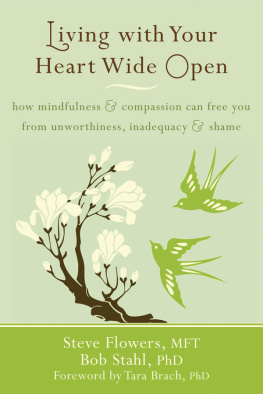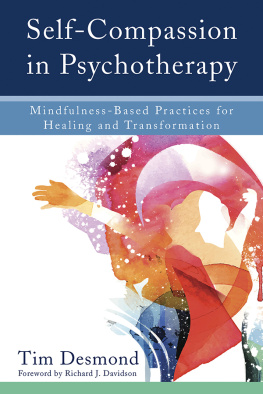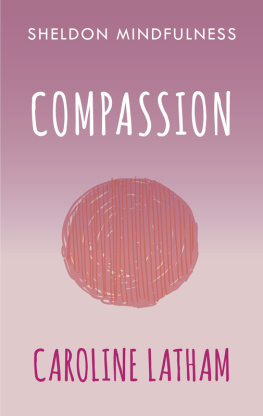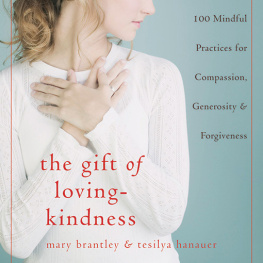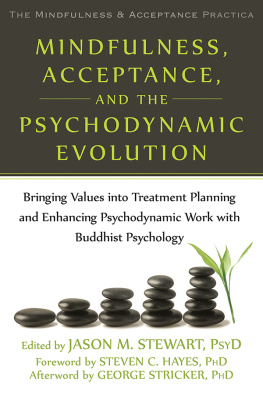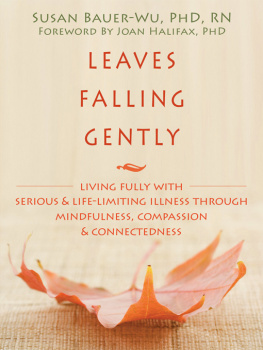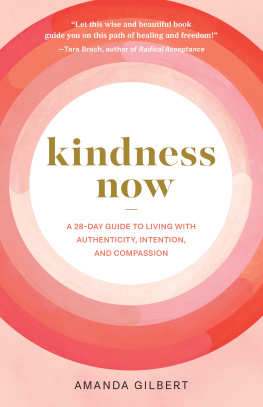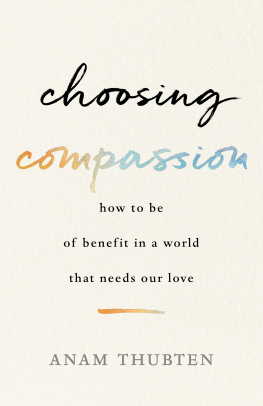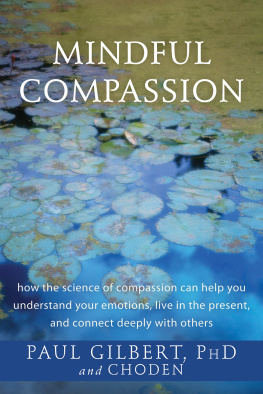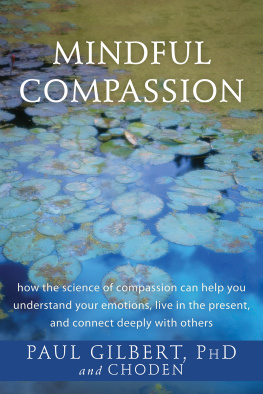Acknowledgments
Endless acknowledgments to my kind and caring parents, Marilyn and Alvan Stahl, who have consistently embodied living to the fullest with such deep love. I want to honor my grandparents, Nettie and Ben, and Ida and Samuel, who seeded so much love into our families. Many thanks also to my brother, Barry, and sister, Kim, and their families for their loving support. Words cannot express my profound gratitude to my beloved wife, Jan, and our sons Ben and Bodhi. They keep me humble and honest, and show me the importance of family and love. Deep bows to my dharma teachers, Taungpulu Sayadaw, Hlaing Tet Sayadaw, Pakokhu Sayadaw, and Rina Sircar. I would not be on this mindful path without them.
I want to acknowledge my dear friend, beautiful wild man extraordinaire Steve Flowers, who is my coauthor in this collaboration. I am in awe of his of magnificent heart and sharp intellect.
Lastly, I want to thank all of my students, as well as my dearest dharma friends, who bring out the best in me: Mary Grace Orr, Dan Landry, Jill and Bruce Hyman, Marcy Reynolds, Jason Murphy, Skip Regan, Tom Williams, Karen Zelin, Bruce Eisendorf, Melissa Blacker, Florence Meleo-Meyer, Elisha Goldstein, Richard Shankman, Jon Kabat-Zinn, Saki Santorelli, and Vesarajja.
Bob
This book contains the wisdom, compassion, and loving-kindness of many teachers, foremost of whom is my best friend and loving wife, Mary, whose love and generosity of spirit has transformed my life. You will find much of her wisdom and compassion in these pages. In this same spirit, I wish to acknowledge and honor my two sons, Todd and Terry, as well as my sister Kim, who have taught me the value of good faith, the power of love, and how to remain steadfast in the storms of life.
I am grateful to my clients, students, and the participants of the Mindful Living Programs retreats for the many stories of courage, redemption, and reconciliation that fill these pages. I particularly wish to extend my appreciation to Andrea Redamonte, Anne Anderson, Lorraine Van Elswyk, Rob Moore, Carrie Leontis, Kate Bartholomew, April Grossberger, and Diana Fratas for showing me how to embrace the truth of our lives and face fate with courage and self-compassion. You have taught me the power and resilience of the human spirit and how to live with an open heart no matter what life throws at you.
I extend my heartfelt gratitude to my dear friend and dharma brother Bob Stahl for his friendship and love and for so generously sharing with me his amazing gifts of wisdom and compassion. I hold dear his presence in my life. Bob has taught me what it means to be a true friend and embodies the goodness and loving-kindness that the whole world longs for.
Finally, I wish to acknowledge my dharma friends and teachers: Jon Kabat-Zinn, Saki Santorelli, Bill Knight, Nancie Brown, Gregory Kramer, Ferris Buck Urbanowski, Melissa Blacker, and Florence Meleo-Meyer, as well as my many friends and colleagues in the community of mindfulness-based stress reduction teachers. You are models for me to be all that I can be.
Steve
We wish to offer our sincere gratitude and a deep bow to Tara Brach for her beautiful foreword, and to Rick Hanson, Jack Kornfield, Stephen Levine, John Robbins, Zindel Segal, and Dan Siegel for their thoughtful support of this book. Thank you!
Bob and Steve
Steve Flowers, MFT, founded the mindfulness-based stress reduction (MBSR) program at Enloe Medical Center and pioneered the international MBSR online program. With Bob Stahl, he leads mindful-living programs and mindfulness retreats for medical and health professionals, couples, and individuals seeking to cultivate mindfulness and compassion in their lives. Directing and providing wellness programs and workshops for corporations, city and county governments, medical centers, and universities, he is deeply committed to bringing mindfulness into health care and society.
Bob Stahl, PhD, founded and directs mindfulness-based stress reduction (MBSR) programs in three medical centers in the San Francisco Bay Area. A longtime mindfulness practitioner who lived in a Buddhist monastery for over eight years, he serves as an adjunct senior teacher at Oasis, the institute for mindfulness-based professional education and innovation at the Center for Mindfulness in Medicine, Health Care, and Society at the University of Massachusetts Medical School. He is coauthor of A Mindfulness-Based Stress Reduction Workbook.
Foreword writer Tara Brach, PhD, has been practicing meditation since 1975 and leads Buddhist meditation retreats at centers throughout North America. She is a clinical psychologist and author of Radical Acceptance and True Refuge.
Chapter 1
The Fiction of Me
We do not deal much in facts when we are contemplating ourselves.
Mark Twain
To feel unworthy is to suffer. It feels like youre flawed and must conceal your faultiness from others or risk being shunned. But concealing, pretending, and holding yourself apart from others tends to make you feel alienated and then interpret these feelings as proof that youre flawed. This is a vicious cycle of self-doubts and self-judgments that separates you from others and prevents you from feeling whole and complete. Though you may be stuck in this self-concept, its far more arbitrary and malleable than you may think.
Author and organizational consultant Margaret Wheatley describes this dynamic well: We notice what we notice because of who we are. We create ourselves by what we choose to notice. Once this work of self-authorship has begun, we inhabit the world we have created. We self-seal. We dont notice anything except those things that confirm what we already think about who we already are When we succeed in moving outside of our normal processes of self-reference and can look upon ourselves with self-awareness, then we have a chance at changing. We break the seal. We notice something new (1999, 1). This is a powerful insight into not only how the concept of self is perpetuated by habits of mind and perception, but also how you can free yourself and discover a much larger experience of who you are. Perhaps none of us discovers who we really are until we free ourselves from concepts of who we are and are not. Therefore we begin this book by exploring how the fiction of self is created and maintained.
The sense of self is formed in early childhood and gradually hardens into self-concepts and beliefs, creating a personal identity that can define and restrict you for the rest of your life. The self is conditioned primarily in early interpersonal relationships, and we then tend to see only those things that confirm who we think we are, and we screen out everything to the contrary. This is what it means to self-seal: closing off possibilities for yourself and sealing your identity, and your fate, within whatever self-construct was created when you were quite young. This self becomes a prison of beliefs that color and distort your experience of who you are.
Margaret Wheatleys quote offers insight into how we can free ourselves from this prison of funhouse mirrors with distorted reflections that we mistake for reality. If you can experience yourself from the immediacy of here-and-now awareness rather than through the narrowed perceptions of a self created long before this moment, you can find another way of being in the world. How do you develop this here-and-now awareness? Mindfulness is the key, and as you work your way through this book, well offer many practices that will help you develop this perspective.
Because its important to understand where youre starting from, in this chapter well explore how an identity of deficiency is constructed and persists from a Western psychological perspective as well as from the point of view of Buddhist psychology. As you learn to bring mindful awareness and inquiry into these self-limiting constructions, youre likely to discover possibilities for greater freedom and peace. Its like the Zen cartoon that shows an anguished prisoner clinging to the bars of his cell while a small door in a dark corner of his cell is clearly open. Until you let go of the bars of your prison of self and begin to explore the dark and unlit places within yourself, you cant find the door to freedom.

